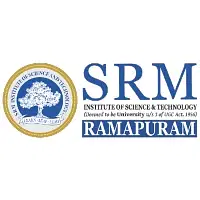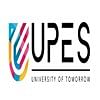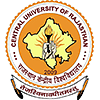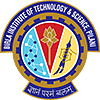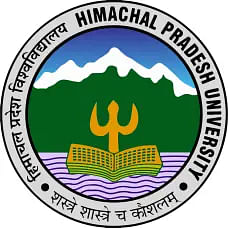
Table of Contents
IIITH PGEE syllabus 2023 is decided by the conducting body. Candidates planning to appear for the exam must go through the exam syllabus thoroughly before they start the preparation. The syllabus for the IIITH PGEE 2023 examination is based on the graduation subjects and involves questions related to the paper of specialization.
The subject-wise IIITH PGEE 2023 syllabus is described below.
IIITH PGEE 2023 Syllabus for Paper I (General Aptitude)
This is an objective type question paper and will test your
- Basic aptitude
- Logical reasoning
- Computers and mathematics.
Note: A minimum cut-off score in this paper is compulsory for the evaluation of the candidate's subject paper (Paper-II).
IIITH PGEE 2023 Syllabus for Paper-II
- Mathematics Subjective
- Computer Science Objective
- Electronics and Communications Engineering (Objective and Subjective)
- Structural Engineering (Subjective)
- Computational Natural Sciences and Bioinformatics Objective
- Computational Linguistics
The detailed syllabus is as follows.
IIITH PGEE 2023 Syllabus for Mathematics
- Finite Dimensional Linear Vector Space: Linear Independence, Span, Basis, Orthonormal Set, Gram-Schmidt Orthogonalization Process, Inner Product, Dual Space, Eigen Space, Rank of a Matrix, Cayley-Hamiltonian Theorem, Similar Matrices, Linear Operator, Hermitian, Unitary and Normal Matrices, Spectral Decomposition.
- Group, Ring, and Field: Basic Concepts of Groups, Cyclic Group, Cosets, Elementary Concepts of Rings and Fields
- Real Analysis: Concepts of sets of Real numbers, Sequence of Real Numbers, Continuous and Differentiable Functions, Rolle’s Theorem, Mean Value Theorem and Taylor Series, Reimann Integration
- Probability Theory: Conditional Probability, Bayes Theorem, Random variable, PDF and CDF, Moment Generating Function, Theoretical Distribution (Binomial, Poisson, Normal, Uniform and Hypergeometric).
- Complex Analysis: Analytic functions, Integration, Cauchy’s Integral Theorem, Cauchy’s Integral formula, Taylor and Laurent Series, Residue, Contour Integration.
- Ordinary Differential Equation: The Equation of First-order and First Degree, Second-order Linear Equation with Constant coefficients.
- Optimization: Linear Programming Problem.
IIITH PGEE 2023 Syllabus for Computer Science
Fundamental Programming Concepts, Control Flow, Functions, Recursion, Basic Data Structures (arrays, lists, stacks, and queues), Basic algorithms (sorting and searching), Boolean Algebra, Digital Building Blocks (AND/OR/NAND/XOR Gates), Karnaugh's Maps, Computer Organisation, Number Systems. Capability to write programs in C or C++ is expected, Relational Databases (Functional dependencies, SQL), Computer Networks.
IIITH PGEE 2023 Syllabus for Electronics and Communications Engineering
(Selection for the interview for the streams (i) VLSI & Embedded Systems and (ii) Signal Processing and Communication will be based on the score in this paper and the score in the general aptitude test. This subject examination paper is divided into two parts: Part A (Electronics) and Part B (Signal Processing and Communication))
Selection for the interview will be based on the combined score in the two parts:
Part A - Electronics
- Networks: Nodal and mesh analysis, Wye-Delta transformation, steady-state sinusoidal analysis, time and frequency domain analysis of RLC circuits, Laplace transformations, 2-port networks, Transfer functions.
- Electronic Devices: Theory and Characteristics of Diodes such as Junction and Zener etc, Transistors such as BJT, JFET, and MOSFET etc, Photodiodes.
- Analog Circuits: Small-signal models and applications of diodes, BJT, MOSFETs, Biasing of transistors, Types of Amplifiers, Op-amp circuits, Filters, Oscillators, Function generators and wave-shaping circuits.
- Digital circuits: Boolean algebra, logic gates, Logic families, combinational, arithmetic, memory and sequential circuits, ADC, Microprocessors, and Microcontrollers.
- Control Systems: Components of control systems, Open and closed-loop control systems, stability analysis, Routh-Hurwitz Criteria, Signal flow graphs, transient and steady-state analysis of LTI control systems including frequency response, Root loci, Bode and Nyquist plots, lead and lag compensation, PID control.
Part B - Signal Processing and Communications
- Signals and Systems: Classification of signals, LTI system analysis, System properties, Fourier Series, Fourier Transform, discrete-time Fourier series, Laplace Transform, Z-transform, System transfer function, Fourier analysis of LTI systems, Sampling theorem.
- Probability theory and random processes: random variables, probability distribution function, probability density function, conditional probability, Bayes theorem, central limit theorem, functions of random variables, random processes, stationary random processes, auto-correlation and cross-correlation functions, power spectrum.
- Communication Theory: Analog and Digital Modulation and demodulation, Superheterodyne Receivers, Quantization, Line Coding, Matched filters, Receiver structures in the presence of AWGN, Probability of error.
- Digital Signal Processing: Discrete Fourier transform, FFT, Z-transform, Z-domain analysis of LTI systems, Circular convolution, Design of digital IIR and FIR filters.
- Electromagnetics: Basics of Electromagnetics, Vector calculus, Maxwell’s equations, Wave equation, Transmission lines, matching networks, S-parameters, Basics of waveguides, optical fibres, and Antennas.
IIITH PGEE 2023 Syllabus for Structural Engineering
Bending moments and shear forces in beams, stress and strain relations, principal stresses, Mohr's circle, simple bending theory, flexural and shear stresses, torsion, analysis of trusses and frames, analysis of indeterminate structures by force/displacement methods, matrix methods of structural analysis, working and limit state design concepts, design of compression members, beam, slab, footing, staircases, basic concepts of prestressed concrete, riveted and welded joints, steel beam-column connections, plate girders and design of the base plate.
In addition to this, some questions from engineering mathematics like determinants, matrices, limit, continuity, and differentiability, mean value theorems, integral calculus, partial derivatives, maxima and minima, ordinary differential equations and applications, initial and boundary value problems, Laplace and Fourier transforms, test for convergence, sequences and series.
IIITH PGEE 2023 Syllabus for CCNSB Subject Paper
Computational Natural Sciences and Bioinformatics
Selection for the interview for the streams (i) Bioinformatics and (ii) Computational Natural Sciences will be based on the score in this paper and the score in the general aptitude test. This examination paper comprises three sections: Physics, Chemistry, Biology & Bioinformatics, (physics and chemistry only for Post-B.Sc. programs) and students, depending on their background are expected to attempt any one Section as a major and another section as a minor part. The questions will be multiple-choice.
IIITH PGEE 2023 Syllabus for Physics
Mechanics and General Properties of Matter, Electricity and Magnetism, Kinetic theory and Thermodynamics, Modern Physics, Solid-State Physics, Devices, and Electronics.
IIITH PGEE 2023 Syllabus for Chemistry
- Physical Chemistry: Atomic Structure, Theory of Gases, Chemical Thermodynamics, Chemical and Phase Equilibria, Electrochemistry, Chemical Kinetics.
- Organic Chemistry: Basic Concepts in Organic Chemistry and Stereochemistry, Aromaticity and Huckel's rule, Heterocyclic Chemistry, Qualitative Organic Analysis.
- Inorganic Chemistry: Periodic Table, Chemical Bonding, and Shapes of Compounds, Main Group Elements (s and p blocks), Transition Metals (d block), Analytical Chemistry.
- Biology & Bioinformatics Section
- Biology: General Biology, Biochemistry, Physiology, Molecular Biology, Cell Biology.
- Bioinformatics: Sequence Analysis, Sequence Alignments, Phylogeny, Gene Prediction, Structural Biology.
IIITH PGEE 2023 Syllabus for Computational Linguistics
- Morphology - Words and how they are formed. What is morphology? Basic building blocks in morphology - morphemes
- Word formation - function-based. Other word-formation processes - affixation, suffixation, etc. Morphotactics - constraints on affixation, Morphophonology, Computational morphology - FSA, paradigms, etc
- Word-Classes and part of speech tagging
- Lexicography, Syntax, Syntactic structure, Dependency structure, Grammar formalisms
- Semantics, Lexical semantics, Sentential semantics.



